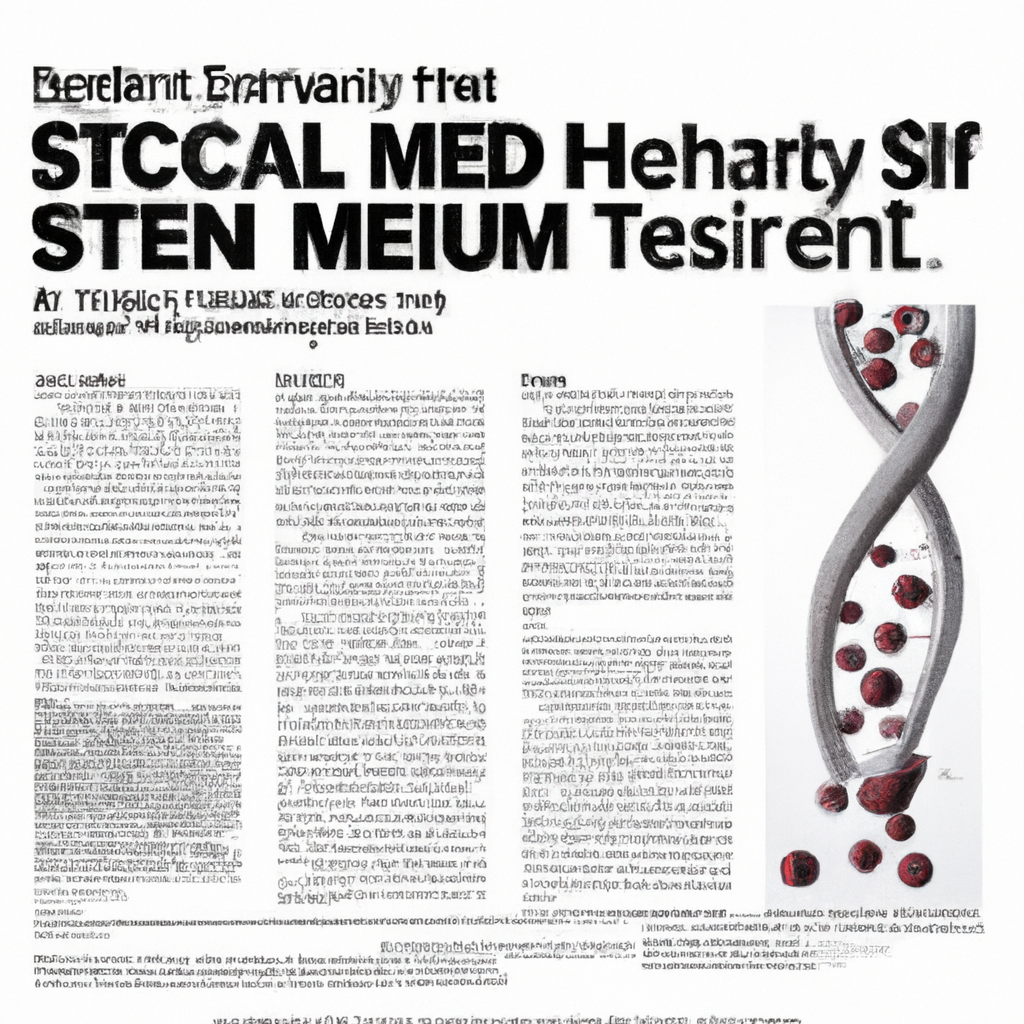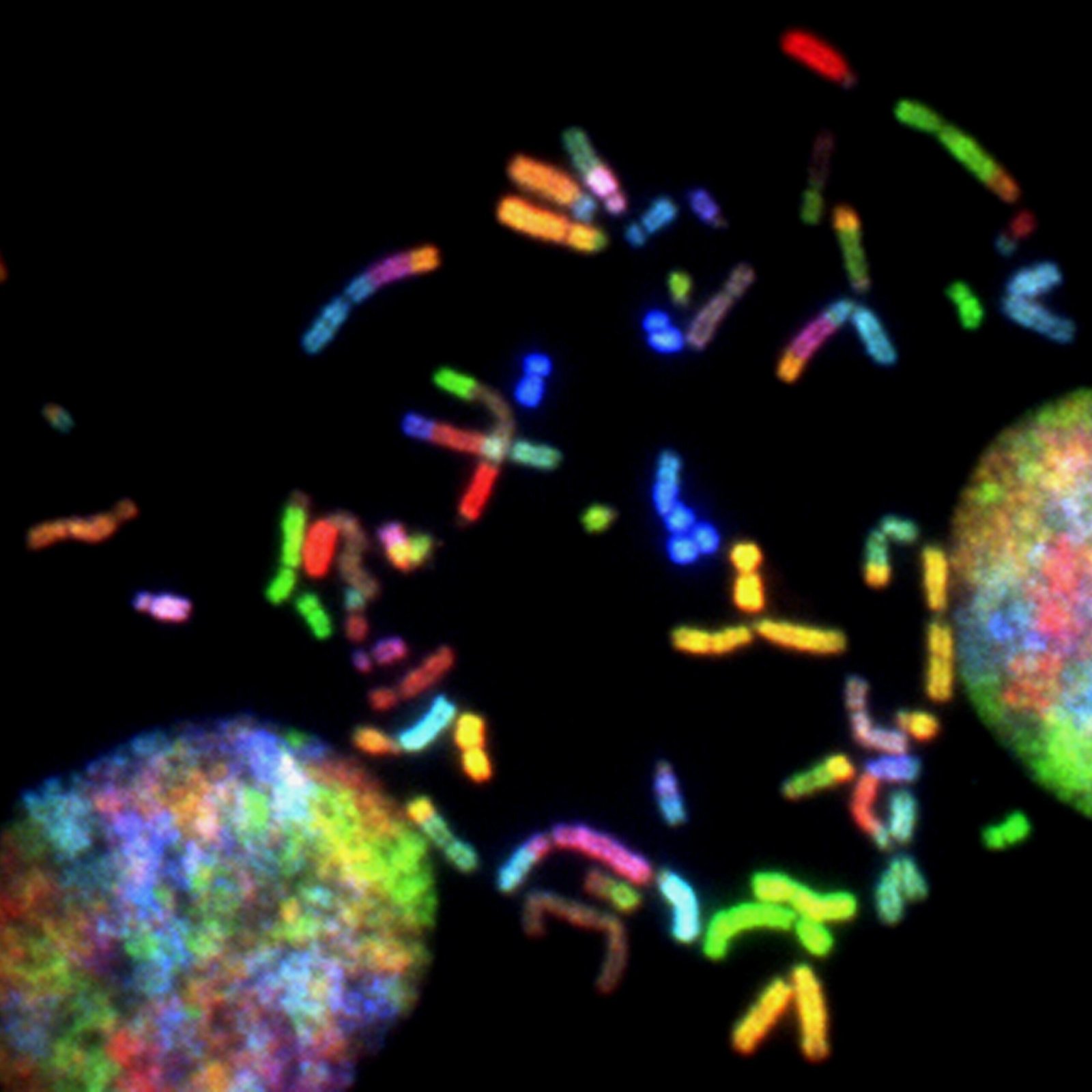Are you interested in supporting stem cell research and raising awareness in Malaysia? If so, you’re in the right place! In this article, we will explore various ways in which you can contribute to the advancement of stem cell research in Malaysia, as well as promote awareness about its immense potential in the field of healthcare. Whether you are a scientist, a healthcare professional, or simply someone passionate about making a difference, this article will provide you with valuable insights and actionable steps to support this important cause. So, let’s dive in and discover how you can be a part of the stem cell research and awareness movement in Malaysia!

Understanding Stem Cell Research
What are stem cells?
Stem cells are undifferentiated cells that have the ability to develop into different types of specialized cells in the body. They are the building blocks of life and have the potential to regenerate and repair damaged tissues and organs. Stem cells can be found in various tissues and organs, including bone marrow, blood, and umbilical cord blood.
Importance of stem cell research
Stem cell research plays a vital role in advancing medical knowledge and improving healthcare outcomes. It offers the potential for new treatments and therapies for a wide range of diseases and conditions, including cancer, heart disease, neurodegenerative disorders, and spinal cord injuries. Stem cells have the unique ability to self-renew and differentiate into specific cell types, making them an invaluable tool in regenerative medicine.
Types of stem cells
There are several types of stem cells that researchers work with, each with its own unique characteristics and potential applications.
-
Embryonic stem cells: These stem cells are derived from early-stage embryos and have the ability to differentiate into any type of cell in the body. They hold great promise for therapeutic use but are also ethically controversial due to the destruction of embryos in the process of obtaining them.
-
Adult stem cells: These stem cells are found in fully developed tissues and organs in the body. They have a more limited differentiation potential compared to embryonic stem cells but can still be used for regenerative purposes. Examples include hematopoietic stem cells found in bone marrow and mesenchymal stem cells found in adipose tissue.
-
Induced pluripotent stem cells (iPSCs): These stem cells are generated by reprogramming adult cells, such as skin cells, to behave like embryonic stem cells. iPSCs have the potential to give rise to any cell type in the body and offer an ethically acceptable alternative to embryonic stem cells.
Current State of Stem Cell Research in Malaysia
Overview of stem cell research in Malaysia
Malaysia has made significant strides in stem cell research, with several institutions and research centers actively conducting studies in this field. The Malaysian government has recognized the potential of stem cell research and has provided support through funding and infrastructure development. The National Stem Cell Registry was established to regulate the ethical and scientific aspects of stem cell research and therapy in the country.
Advancements and breakthroughs
Stem cell research in Malaysia has led to several advancements and breakthroughs in various areas. Researchers have successfully differentiated stem cells into specific cell types for potential therapeutic applications. For instance, there have been promising developments in using stem cells for repairing damaged cardiac tissue after a heart attack. Stem cell-based therapies for certain types of cancer are also being explored.
Challenges faced by stem cell researchers in Malaysia
Despite the progress in stem cell research, there are challenges that researchers in Malaysia face. Limited funding, regulatory restrictions, and ethical considerations pose obstacles to the development of stem cell therapies. Public awareness and understanding of stem cell research are also relatively low, which can hinder support and funding for further research. Overcoming these challenges requires a collaborative effort from the scientific community, policymakers, and the public.
Benefits of Supporting Stem Cell Research in Malaysia
Medical advancements and potential treatments
Supporting stem cell research in Malaysia can lead to significant medical advancements and potential treatments for various diseases and conditions. The research may uncover new therapies that can improve patient outcomes, enhance quality of life, and reduce healthcare costs. Stem cell-based treatments have the potential to revolutionize healthcare by providing personalized and regenerative approaches to disease management.
Economic benefits
Investing in stem cell research can also bring about economic benefits for Malaysia. A robust stem cell research industry can attract local and international investments, creating job opportunities and fostering innovation. The development of stem cell therapies can also lead to a reduction in healthcare expenditures by providing more effective and cost-efficient treatment options.
Improving healthcare in Malaysia
Supporting stem cell research can contribute to the improvement of healthcare in Malaysia. By fostering innovation and scientific advancements, new treatments and therapies can be developed to address the healthcare needs of the population. Stem cell research has the potential to transform medical practice by offering solutions to previously untreatable conditions, thereby improving the overall health and well-being of Malaysians.
Raising Awareness for Stem Cell Research in Malaysia
Importance of awareness
Raising awareness about stem cell research is crucial to garner support and funding for further advancements in the field. By educating the public about the potential benefits of stem cell therapies, misconceptions and ethical concerns can be addressed. Awareness campaigns can also encourage individuals to consider donating to stem cell research initiatives and participate in clinical trials.
Engaging with the public
Engaging with the public is essential in disseminating accurate and reliable information about stem cell research. Public talks, workshops, and seminars can be organized to provide opportunities for people to learn about the science behind stem cells and their potential applications. In these engagements, it is important to address common misconceptions and ethical concerns while emphasizing the immense potential of stem cell research.
Collaborating with healthcare organizations
Collaborating with healthcare organizations can amplify the efforts to raise awareness about stem cell research. Partnering with hospitals, clinics, and medical associations can provide platforms for sharing information and organizing educational events. These collaborations can also facilitate the translation of research findings into clinical practice, enabling the benefits of stem cell therapies to reach patients in need.

Donating to Stem Cell Research Initiatives in Malaysia
Understand the donation process
Donating to stem cell research initiatives in Malaysia can contribute to the advancement of scientific knowledge and the development of new treatments. It is important to understand the donation process, which typically involves the collection of various types of stem cells from willing donors. These cells can be used for research purposes or potentially for transplantation to patients in need.
Identify reputable organizations
When considering donating to stem cell research initiatives, it is crucial to identify reputable organizations. Look for institutions and research centers with a track record of ethical research practices and transparent governance. The National Stem Cell Registry in Malaysia can provide guidance on registered research entities and potential donation opportunities that adhere to ethical and regulatory standards.
Benefits of donations
Donating to stem cell research initiatives not only supports scientific advancements but also provides individuals with the opportunity to make a difference in the lives of others. By contributing to the development of new therapies and treatments, donors can help alleviate human suffering and improve healthcare outcomes. Furthermore, donations can also indirectly benefit the donor by enhancing the overall healthcare landscape in Malaysia.
Becoming an Advocate for Stem Cell Research
Building knowledge and expertise
Becoming an advocate for stem cell research involves building knowledge and expertise in the field. Stay informed about the latest developments and research findings by attending conferences, reading scientific literature, and following reputable sources. By continuously expanding your knowledge, you can effectively communicate and advocate for the importance of stem cell research to various stakeholders.
Engaging with policymakers
Engaging with policymakers is crucial to advocate for the support and funding of stem cell research initiatives. Reach out to local representatives, members of parliament, and government agencies to emphasize the potential benefits of stem cell research and the importance of investment in the field. Provide evidence-based arguments and highlight success stories to strengthen your advocacy efforts.
Promoting public discourse
Promoting public discourse on stem cell research can help address concerns, correct misinformation, and create a supportive environment for scientific advancements. Engage in discussions on social media platforms, contribute to online forums, and write opinion articles to raise awareness and encourage informed conversations. By fostering open dialogue, you can play a pivotal role in shaping public perception and garnering support for stem cell research.

Supporting Stem Cell Research Through Volunteering
Finding volunteer opportunities
Volunteering in stem cell research-related organizations and institutions can provide valuable support to ongoing projects. Reach out to local universities, research centers, and hospitals to inquire about volunteer opportunities. Such opportunities may involve assisting with data entry, patient recruitment, laboratory tasks, or public awareness campaigns. By actively participating in these initiatives, you can contribute to the promotion and advancement of stem cell research.
Supporting stem cell clinics and centers
Volunteering your time and skills at stem cell clinics and centers allows you to directly contribute to the development and delivery of stem cell therapies. Volunteers may assist in patient care, provide support to healthcare professionals, or engage in administrative tasks. By supporting the operations of these clinics and centers, you can help ensure the smooth implementation of stem cell treatments and contribute to improving patients’ lives.
Assisting in research studies
Volunteering as a research participant in stem cell studies can provide researchers with valuable data and insights. Participating in clinical trials or research studies may involve undergoing specific procedures or treatments, providing biological samples, or participating in surveys and interviews. By actively engaging in research studies, you can contribute to the scientific understanding of stem cells and potentially benefit from cutting-edge therapies.
Hosting Events and Fundraisers for Stem Cell Research
Organizing awareness campaigns
Hosting events and fundraisers for stem cell research can raise awareness and generate support for the cause. Organize informative seminars, workshops, or public lectures featuring experts in the field to educate the community about the potential of stem cell therapies. Additionally, consider organizing fundraising events like charity runs, auctions, or benefit concerts to gather financial resources for stem cell research initiatives in Malaysia.
Fundraising through events
Events can serve as opportunities to collect funds for stem cell research initiatives. Encourage event attendees to make donations directly or through sponsorships. Collaborate with local businesses and organizations to secure sponsorships and donations for the event, ensuring that the funds raised contribute directly to reputable stem cell research entities. Transparency in fundraising efforts is essential to maintain public trust and support.
Collaborating with other supporters
Collaborating with other supporters can amplify the impact of fundraising events and awareness campaigns. Join forces with local patient advocacy groups, medical associations, universities, and community organizations to organize collaborative events. By pooling resources, knowledge, and networks, a united front can help garner more attention and support for stem cell research in Malaysia.

Engaging with Local Universities and Research Institutions
Collaborating on research projects
Engaging with local universities and research institutions allows for collaboration on stem cell research projects. Reach out to researchers and scientists in these institutions to explore opportunities for joint projects or research partnerships. By combining expertise and resources, collaborations between academic institutions and research facilities can accelerate the progress and impact of stem cell research in Malaysia.
Supporting educational initiatives
Supporting educational initiatives by partnering with universities and research institutions can contribute to the development of future stem cell researchers and scientists. Offer scholarships, grants, or internship programs specifically targeted at students interested in stem cell research. By nurturing talent and providing educational opportunities, you can foster a thriving scientific community dedicated to advancing stem cell research in the country.
Participating in conferences and seminars
Participating in conferences and seminars related to stem cell research allows for knowledge sharing, networking, and collaboration opportunities. Attend and present at local and international conferences to stay updated on the latest research and share your own findings with the scientific community. As an active participant, you can contribute to the advancement of stem cell research through discussions and collaborations with experts from various disciplines.
Promoting Stem Cell Research through Media and Social Channels
Writing articles and blog posts
Promote stem cell research by writing articles and blog posts that highlight its potential benefits and latest developments. Create engaging and informative content that is accessible to the general public, addressing common questions and concerns. Submit articles to reputable publications, both online and print, and maintain an active blog where you can regularly share updates on stem cell research initiatives and breakthroughs in Malaysia.
Sharing information on social media
Harness the power of social media platforms to share information about stem cell research. Create dedicated social media accounts or utilize existing platforms to disseminate accurate and reliable information. Share articles, research papers, infographics, and videos that explain the science behind stem cells and their potential applications. Encourage discussions and engage with followers to answer questions and address concerns.
Collaborating with journalists and influencers
Collaborate with journalists, science writers, and influencers to amplify the reach and impact of your message. Reach out to media outlets and offer to provide expert opinions, insights, or interviews on stem cell research in Malaysia. Engage with influencers who have an interest in healthcare or scientific topics and collaborate on content creation or awareness campaigns. By partnering with these individuals, you can leverage their platforms to raise awareness about stem cell research.





